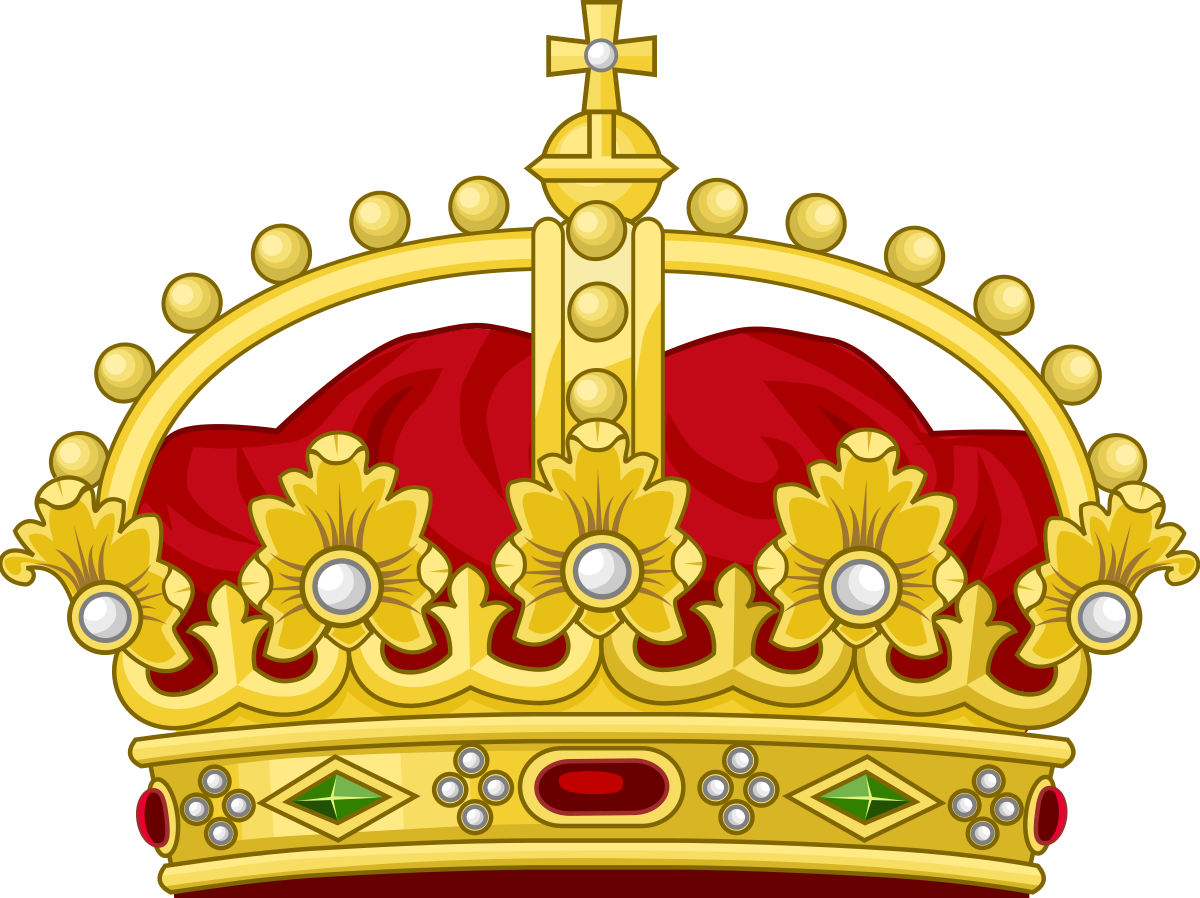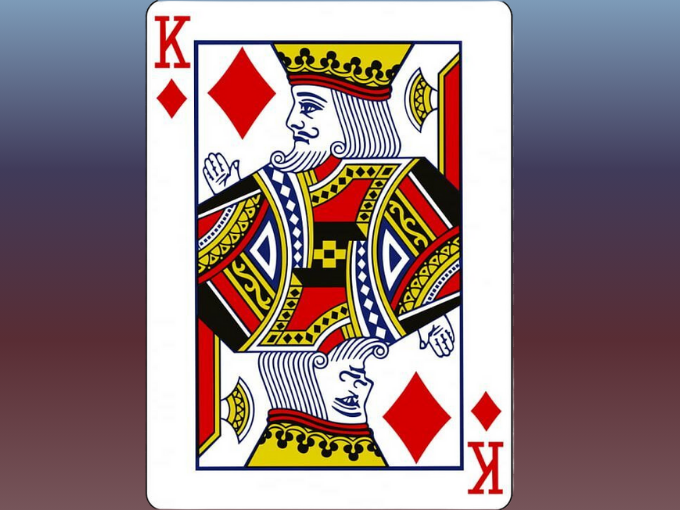
The card game King is widely played in various parts of the world – known in France, Belgium, Italy, and especially popular in Portugal, Russia, Turkey, Colombia, and Brazil.
Although the origin of the game is not entirely clear, it is believed that it started being played in England due to its name.
Moreover, there are more variants of the game – the Turkish “King” is called “Rifki” and the French-Belgian “Le Jeu du Roi“, which literally translates to The Game of Kings. Thus, as we can see, the theme of kings has held a very important place in card games since ancient times.
Card Game King
How many players play?
The card game King is usually played by four players.
Tools needed for the game
It is played with a traditional 52-card deck. The ranking order of the cards is also standard – the highest value card is the ace, and the lowest is the deuce.
The first dealer is chosen by lot, and the next dealer becomes the neighbor sitting to the left. The seating positions at the table are also chosen in the same way. The dealer gives each player one card from the shuffled deck, which has been cut by the right-hand neighbor. Each player receives 13 cards and must win a set number of specific special tricks over 10 deals.
Cards are dealt and moves are made clockwise. The first game is chosen by the left-hand neighbor of the dealer, who also plays the first card.
Sometimes King is played with a 32-card deck – the lowest-ranking card becomes the seven. In this case, players receive 8 cards each.
Trumps
Which suit will be trumps is decided when playing with positive deals (see below).
Trump cards have greater cutting power but can only be used for tricks if the player does not have the required suit cards or decides to start the trick with a trump card.
Best online casinos offering games:
How to play?
When playing “King,” the deals are divided into positive and negative. During 6 negative deals, all players can collect a total of minus 1300 points, and during 4 positive deals – plus 1300 points. At the end of the game, after counting all the points collected by the players, the result must be equal to 0.
Negative deals
1st deal
This deal is played without tricks, with a very simple goal – just not to win any tricks. The card dealer starts playing with any card. Other players put down cards of the same suit. If they don't have such cards – they put down any other card.
The trick is won (and lost) by the player who puts down the highest-ranking card of the same suit or a trump card if playing with trumps. The player who wins the trick continues the game with any chosen card.
The game continues until there are no more cards left.
At the end of the game, each player counts their points and announces them out loud. For each trick taken, minus 20 points are awarded, and during this trickless deal, up to minus 260 points can be collected.
2nd deal
This deal is played without hearts – the goal is to avoid and not take tricks with hearts. A player cannot start a trick with a heart card unless they have no other card. If the player to their left does not have the required card for the trick, they put down any other card.
For each trick taken with a heart card, minus 20 points are awarded, and a total of minus 260 points can be collected.
3rd deal:
In this card deal, the goal is to avoid winning tricks with queens. Each queen is worth minus 50 points, and a total of minus 200 points can be collected during the deal.
4th deal
The 4th card deal is called without kings and jacks, so the goal is to avoid taking tricks that contain any king or jack. Each king or jack card is worth minus 30 points, and a total of minus 240 points can be collected.
5th deal
This deal aims to avoid the king of hearts, which is called the King. This card cannot start a trick unless it is the only card left for the player.
Important! Try to get rid of the king of hearts as soon as possible, as it is worth minus 160 points.
6th deal
This deal is called without the last 2 tricks. The goal is to win any tricks except the last two. For the last 2 tricks, minus 90 points are awarded each, so a total of minus 180 points can be collected.
Positive deals
After playing 6 games with negative deals, it is time for 4 positive ones, which are called auctions.
The card dealer, or auctioneer, changes with each game. The auctioneer, who deals the deck to the players, has the right to look at their cards.
Based on the cards received, they decide which cards will be trumps and choose the most favorable deal – positive, where the point total increases, or negative, where the point total decreases.
They can also sell their auctioneer's right to another player and thus earn real points.
Points
For each won trick in a positive deal, the player receives 25 points. The game is played both with and without trumps. The maximum number of points is 325.
In a negative deal, each player starts the deal with 325 positive points and loses 75 points for each won trick. If a player fails to win any tricks, they receive 325 points; if they win 1 trick, they only get 250 points, and so on. A total of 325 points can be accumulated.
King Auction
Players who want to take over the right to choose trumps from the dealer compete in an auction. The auction follows these rules:
Players make bids for the dealer's right in turn, clockwise. The bids are points that players expect to receive by acquiring the dealer's right. The first to bid is the player sitting to the left of the dealer.
*If a player passes during the auction, they can no longer make bids in that same auction.
When making bids, players must mention the number of tricks and the type of deal – whether it is positive or negative. If positive (called plus), the points earned for tricks will be added to the player's accumulated points, and if negative (called minus), they will be subtracted from the negative deal's total (325 points).
Each subsequent bid must be of higher value than the previous one.
A bid of one plus (+1) equals 25 game points. Three plus (+3, or 75 points) equals one minus (-1). One minus (-1) equals minus 75 game points. The highest possible bid is eight plus (+8). Thus, bids of +1, +2, and +3 can be outbid by a bid of minus 1; bids of +4, +5, and +6 by a bid of minus 2, and the latter by bids of +7 or +8.
For example, the dealer can issue an ultimatum to other players and offer eight plus or a negative deal. If a player bids plus 8, the dealer cannot refuse the bid and must transfer their right to set the trump to that player.
The player who acquires the dealer's right can declare a trump or a negative deal. The player can choose the trumps and announce them when the dealer agrees to the proposed points.
It may happen that a player sitting in a more favorable position preempts other players. The priority rule means that a player who made an earlier bid can match a later bid and win the auction.
Matching is only possible under the same conditions: if the last bid was plus 3, the player wishing to match must bid not, say, minus 1, but the same, i.e., plus 3. The first player to the left of the dealer has priority over the second and third players, and the second over the third.
Thus, if the second and third players bid more than the first, the first can match the bid and win the auction based on the priority rule.
When players stop bidding, the dealer must accept the last bid made or reject it. They can also try to negotiate for a higher points amount and issue an ultimatum.
The final decision is in the dealer's hands (unless they issued an ultimatum, in which case there is no turning back). Once the decision is announced, the auction ends.
Let's Settle Up!
After the deal is played, the auction winner must pay the dealer according to the terms of the bid.
If the deal was positive (plus) and the auction winner failed to collect the required number of tricks, they must give up some of their points. The missing amount is subtracted from the total points and added to the dealer's points.
If the deal was negative (minus), the auction winner receives points for as many of the dealer's tricks as were bid.
In this case, the auction winner's points decrease, while the dealer's do not (unless the dealer has taken more tricks than were collected; then the points for those additional tricks are subtracted from their points).
Unsuccessful Auction
If fewer than 3 bids are made during the auction, the dealer can independently decide to take points for the deal's default. In this case, the dealer earns plus 4 points, and each other player earns plus 3 points.
It is also interesting to note that honor rules are used to maintain the fairness of this game, so one should strive not to cheat!
More card games can be found here:







